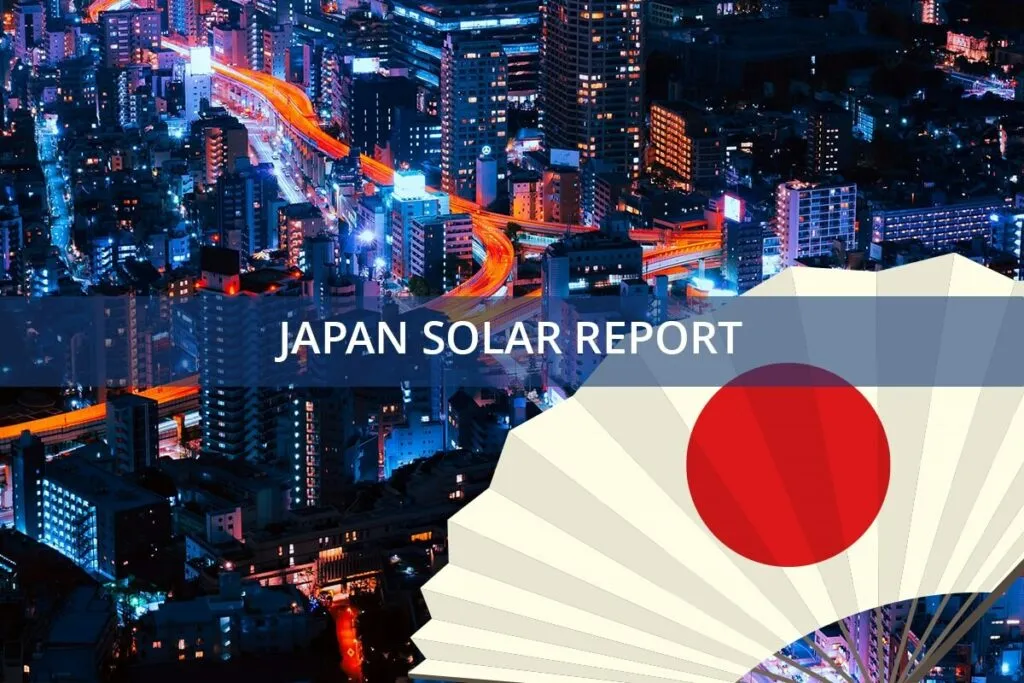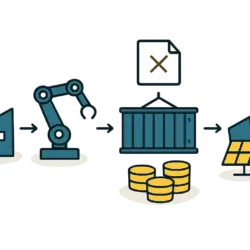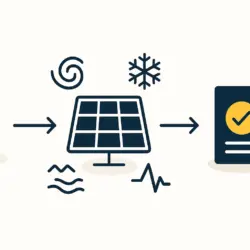Daiwa Energy & Infrastructure (DEI) and Osaka Gas have announced a joint venture to develop a 1.5-MW solar power plant in Kyoto, marking a significant step in their partnership to expand renewable energy projects. This collaboration highlights the increasing global trend towards renewable energy and infrastructure development, similar to the $164 million secured for a 250 MW solar PV portfolio in Japan.
Kyoto renewable energy Solar Project
DEI and Osaka Gas will collaborate on the development of the 1.5-MW Kyoto Solar Power Plant, which is expected to begin construction in the fiscal year 2025. The project will be fully funded through equity from both companies and debt financing from financial institutions. This initiative underscores the companies’ commitment to advancing renewable energy infrastructure in Japan.
The Kyoto Solar Power Plant will utilize a landlord leasing model, where the landowner receives a portion of the electricity sales revenue. This approach not only supports the expansion of renewable energy but also benefits local landowners, thereby promoting community involvement in the transition to cleaner energy sources. This mirrors efforts seen in South Korea, where regulatory changes are simplifying solar panel installations. Understanding the basics of solar panel manufacturing can shed light on the technology powering these projects.
Expanding Kyoto renewable energy Portfolio
In addition to the Kyoto Solar Power Plant, DEI and Osaka Gas are working on two other renewable energy projects in Japan: the Iwate Solar Power Plant and the Shonan Hiratsuka Solar Power Plant. These projects are designed to enhance the companies’ renewable energy portfolios and contribute to Japan’s national decarbonization goals.
The Iwate Solar Power Plant is a 2.8-MW facility located in the Tohoku region, while the Shonan Hiratsuka Solar Power Plant is a 1.2-MW project situated in Kanagawa Prefecture. Both projects are developed using the landlord leasing model, further showcasing the companies’ focus on sustainable and community-friendly renewable energy solutions. These projects align with global trends, such as the partnership between Sumitomo and CEP Solar for 1.5 GW of solar projects in the US.
Commitment to Kyoto renewable energy
Osaka Gas has also announced the development of a 7.3-MW solar power plant in the Kansai region, highlighting its ongoing efforts to expand renewable energy infrastructure. The company aims to achieve carbon neutrality by 2050, with a target of owning 1.5 GW of renewable energy generation capacity by 2030. The solar panel manufacturing process is a key element in achieving these ambitious goals.
DEI, a wholly-owned subsidiary of Daiwa Securities Group Inc., is dedicated to developing and operating infrastructure projects in renewable energy, transportation, and digital sectors. The company leverages its expertise in renewable energy and its network of strategic partners to drive forward sustainable infrastructure initiatives.
Kyoto renewable energy Projects in Japan
Japan is focused on increasing its renewable energy capacity to reduce its carbon footprint and enhance energy security. The country has set ambitious targets for renewable energy, aiming to achieve a 36-38% share in its energy mix by 2030.
The Kyoto Solar Power Plant is one of several projects in Japan that are contributing to this goal. Other notable projects include the Hokkaido Solar Power Plant, a 10-MW facility developed by JERA, and the Fukushima Solar Power Plant, a 20-MW project developed by Tokyo Electric Power Company (TEPCO). Knowing the raw materials that go into solar panels can provide deeper insight into these projects.
The Kyoto Solar Power Plant project represents a significant step towards a more sustainable energy future for Japan. By leveraging the expertise and resources of companies like DEI and Osaka Gas, Japan is well on its way to achieving its renewable energy targets and reducing its reliance on fossil fuels.
Interested in learning more about the solar industry? Take our Free E-Course to expand your knowledge.



